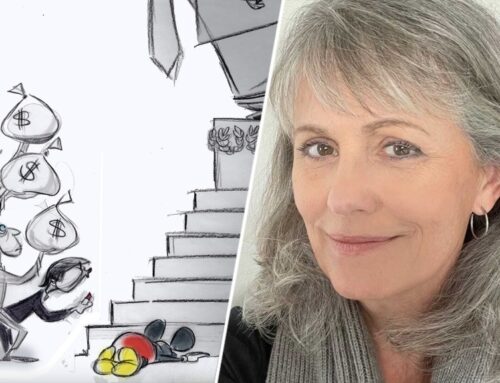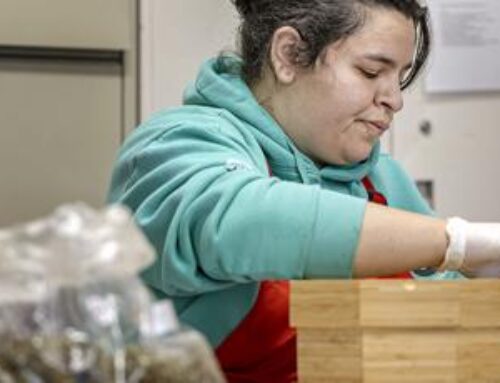Issues of the Environment: Legacy Land Conservancy making plans in Washtenaw County with largest award it’s ever received
January 1, 2025
Overview
- The Legacy Land Conservancy, Michigan’s oldest land trust, recently received its largest financial award to date—a $24.6 million award from the USDA’s Regional Conservation Partnership Program (RCPP).
- This funding aims to protect 4,000 acres of farmland and forests in five counties while balancing regional development with the preservation of clean water, fresh food access, and air quality. Legacy will operate as the lead entity for the project, responsible for managing the deliverables and coordinating funding for the regional coalition partners–the City of Ann Arbor, Ann Arbor Township, Scio Township, Washtenaw County Parks and Recreation Commission, Dexter Township, Webster Township, Northfield Township, Augusta Township, Southeast Michigan Land Conservancy, and Livingston Land Conservancy.
- The Conservancy says Jackson, Lenawee, Livingston, Washtenaw and Wayne counties lost 88,000 acres of agricultural and non-industrial private forest land between 1992-2022, a 12.7% decrease in just 30 years.
- The project, led in partnership with the Southeast Michigan Conservation Coalition (SMCC), emphasizes equitable access to conservation tools, particularly for historically underserved producers. Most of the funds will be used to purchase conservation easements, safeguarding vital natural resources and ensuring sustainable land use. This grant reflects national recognition of the Conservancy’s work and offers a critical opportunity to engage communities in preserving Michigan’s environmental heritage.
- As the award is put to use, high-priority targets include working farms, which support local food production, and forested areas, which aid biodiversity and climate resilience. Conservation efforts will also focus on riparian zones to protect water quality, as well as lands under threat from urban development. A key goal is to engage historically underserved landowners, ensuring equity in access to conservation tools. These initiatives will safeguard vital resources, preserve regional heritage, and enhance environmental sustainability for future generations.
- According to the LLC, “The five-county project area represents only 3.5% of the state’s land base, but is home to over 10% of the state’s new and beginning producers, over 26% of the state’s Black or African American producers, and nearly 14% of all socially disadvantaged producers. Over the last 30 years, the total number of Black or African American producers in the area grew by over seven times. This indicates the region’s long-term agricultural viability is crucial for supporting historically underserved producers.”
- The Legacy Land Conservancy has protected over 10,000 acres of land in southern Michigan since its establishment in 1971. Some of the primary lands they have protected include:
- Beckwith Preserve: Located in Stockbridge, this preserve offers a serene natural environment for visitors.
- Creekshead Nature Preserve: Situated in Plymouth, this area is known for its rich biodiversity and scenic beauty.
- Lloyd and Mabel Johnson Preserve: Found in Ann Arbor, this preserve provides valuable green space for the community.
- Reichert Nature Preserve: Located in Pinckney, this preserve contributes to the conservation of local ecosystems.
- Sharon Hills Nature Preserve: Situated in Sharon Township, this area is protected for its natural significance.
- Woodland Preserve: Found in Ann Arbor, this preserve offers a natural retreat within the city.
Transcription
David Fair: This is 89 one WEMU, and Happy New Year! It is the first day of 2025, and there’s a lot to look forward to in the year ahead. I’m David Fair, and welcome to this week’s edition of Issues of the Environment. 2025 marks 30 years of bringing you the environmental news in our community on WEMU. And we begin our anniversary year and start of 2025 with some great news! There is going to be greater land conservation in Washtenaw and surrounding counties. The Legacy Land Conservancy recently received the largest financial award in the organization’s history: a $24.6 million infusion of money from the USDA’s Regional Conservation Partnership Program. It’s going to help further protect farmland and greenspace in the region. Our first guest of the new year is Susan LaCroix. And Susan serves as land protection director for the Legacy Land Conservancy. And Happy New Year to you!
Susan LaCroix: Happy New Year to you, David! Thank you for having me!
David Fair: I would imagine this funding has put an extra hop in your step as you walk into 2025?
Susan LaCroix: Absolutely! Legacy’s mission is to safeguard the resources in southern Michigan, and an infusion of being able to conserve more land with $24.6 million certainly helps.
David Fair: How did it come to pass that Legacy Land Conservancy secured a nearly $25 million reward?
Susan LaCroix: Legacy was part of an old RCPP that we just wrapped up about a year ago. It was a much smaller RCPP, Regional Conservation Partnership program, and we were looking into this year and learned that there was an extra infusion into the RCPP program with some federal dollars being added from the Inflation Reduction Act. And so, we wanted to throw our hat in the ring because I believe this is the biggest pot of funds that they’ve had for the RCPP ever available. So, we liked our chances of securing another one, especially after just having closed out one from the last six years.
David Fair: I would imagine that going about securing this kind of funding is a rather labor-intensive effort.
Susan LaCroix: Yes. I believe I spent the whole month of June along with three or four other colleagues of mine and our ten other partners working on this application.
David Fair: Well, before we get into specifics, why do you value this financial resource as a benefit, not just to the environment, but to the community as a whole?
Susan LaCroix: Yes, the RCPP program is a wonderful resource. As we know, farmers are struggling, they’re aging out, and our farming community in southern Michigan is vibrant. So, we want to be able to help support the farmers in this community, our Agri-Tours and agribusinesses in this community by hopefully securing land to make sure that they have the land as a resource in the future, as well as forests are a part of this as well, focusing on carbon sequestration, so we can ensure that there’s clean air for our community.
David Fair: WEMU’s first Issues of the Environment conversation of 2025 continues. Our guest today is Susan LaCroix from Legacy Land Conservancy. Now, the loss of agricultural land forest has been rather significant over the years. If I read correctly, over the past 30 years, over 88,000 acres has been lost in Washtenaw, Wayne, Livingston, Jackson and Lenawee Counties. That’s about a 13% decline. What impact does that have on the environmental quality of our region?
Susan LaCroix: It absolutely makes it harder for people to have access to land to farm. It increases the cost of land, which is a barrier for new and beginning farmers to get into farming. Our farmers are also growing in age, and so we want to make sure that new farmers coming in to grow us all healthy food have the ability to access that land. And the loss of green spaces as well has a large impact on our area. I’m sure people have heard over the last few years about the increase in rain events and the intensity of those rain events and having wetlands and forests that are intact to help absorb some of that water in these events is critical to making sure we don’t have that flooding downstream.
David Fair: Well, this is work that has been underway since 1971. I believe the Washtenaw Land Trust, which is now Legacy Land Conservancy, has been expanding its footprint throughout the area. How many acres of agricultural land and forest acreage and greenspace have you been able to preserve over the decades?
Susan LaCroix: Yeah. Legacy Land Conservancy has conserved over 10,000 acres of the various land types that you mentioned through a couple of different tools. We own a few preserves that we manage and open up to the public to connect with nature, as well as conservation easements, which allows the property to remain in private ownership. But we work with the landowner to achieve these conservation goals, which are permanent restrictions on development of the property.
David Fair: And now, with an additional $24.6 million to expand efforts, have you created a priority list or identified properties that you’re looking at in and around Washtenaw County?
Susan LaCroix: Yes. So, as you mentioned, this grant is for five counties: Washtenaw, Jackson, Livingston, Livingston and Wayne. We have identified a few that we put into our proposal of landowners who have already approached us who fit what this proposal would like to achieve, as well as a big part of the grant is wanting to do more outreach to create tools to reach landowners who maybe historically haven’t been able to access NRCS funds for a variety of reasons. And we hope that, through using those tools and getting those off the ground over the next couple of years, we will be able to target getting funds into the hands of what the NRCS defines as historically underserved farmers, which is socially disadvantaged farmers, limited resource farmers and new and beginning farmers.
David Fair: Once again, we’re talking with Legacy Land Conservancy land protection director Susan LaCroix on 89 one WEMU’s Issues of the Environment. So, you just mentioned priorities. Has it always been a priority to view land preservation through the lens of equity and equitable distribution?
Susan LaCroix: My understanding–I’ve been with Legacy almost six years now–is that, before then, there wasn’t a big lens on that. But over the last few years, Legacy has really done a lot of work internally to try to evaluate how we can use land conservation as a way to make land more accessible, whether that be for enjoyment of our nature preserves. We have a big signage project going on to help make our preserves more user-friendly to people who maybe don’t go to more rustic nature preserves as regularly as well as, as we mentioned, trying to target new conservation projects towards a more equitable lens for access to land, but also access to extracting the value that you can through a conservation easement by selling your development rights.
David Fair: Will part of this money be allocated towards creating greater community outreach and educating us as a public as to the work that’s being done, why it’s being done, and the benefits of having it done?
Susan LaCroix: Absolutely! I think as we roll out some of these tools to landowners, it will also be a great way to spark conversation with people in the community to talk about why this work is so important, how it helps better our whole community to protect one person’s farm or one person’s forest, that it helps improve all of our clean air, all of our clean water and helps mitigate flooding and other negative impacts in the communities.
David Fair: Well, you mentioned the partnership that comprises the Southeast Michigan Conservation Coalition. Is there more power and influence when the planning and execution has a more regional than exclusively local approach?
Susan LaCroix: Absolutely! We can look at the larger watershed. We can bring in more partners who have other resources to bring to the table. As I mentioned, we have ten partners officially on this award. A lot of them are municipal programs that have millages in our community who are also investing into land conservation. And we’re also going to work with other partners who have access to other members of the community as well to have these conversations and hopefully get some of these tools out into the community as well. And that’s really why RCCP is so special. It’s focused on regional conservation partners working together. And we felt that because we had successfully finished one last year, we were ready to get the band back together, if you will, to make another larger impact with a bigger reach in the area because it was so successful before.
David Fair: Well, the stated goal of the partnership is 4000 acres preserved through the five-county region. How far along do you expect to be at the end of 2025?
Susan LaCroix: As we probably all know, negotiating contracts with the federal government can be a lengthy process. And if there is a little bit of unknowns with the new administration coming in. So, we are trying to get as much of that done as we can right now. And so, we anticipated that we will mostly be spending 2025 getting our various contracts in order with the federal government to make sure that we are able to tap into those funds with our various partners to start working on conservation efforts likely in 2026.
David Fair: Well, thank you for spending time with us today, Susan! I appreciate the information! And, again, a Happy New year to you and your colleagues at Legacy Land Conservancy!
Susan LaCroix: Thank you very much! Happy New Year! And thank you for the opportunity!
David Fair: That is Susan LaCroix. She serves as the Conservancy’s land protection director and is the first guest of 2025 as we mark 30 years of Issues of the Environment. Issues of the Environment is produced in partnership with the office of the Washtenaw County Water Resources Commissioner. You hear it every Wednesday. I’m David Fair, and this is 89 one WEMU FM Ypsilanti. Celebrating 60 years of broadcasting from the campus of Eastern Michigan University!
Non-commercial, fact based reporting is made possible by your financial support. Make your donation to WEMU today to keep your community NPR station thriving.
Like 89.1 WEMU on Facebook and follow us on Twitter
Contact WEMU News at 734.487.3363 or email us at studio@wemu.org
Search
RECENT PRESS RELEASES
Related Post




